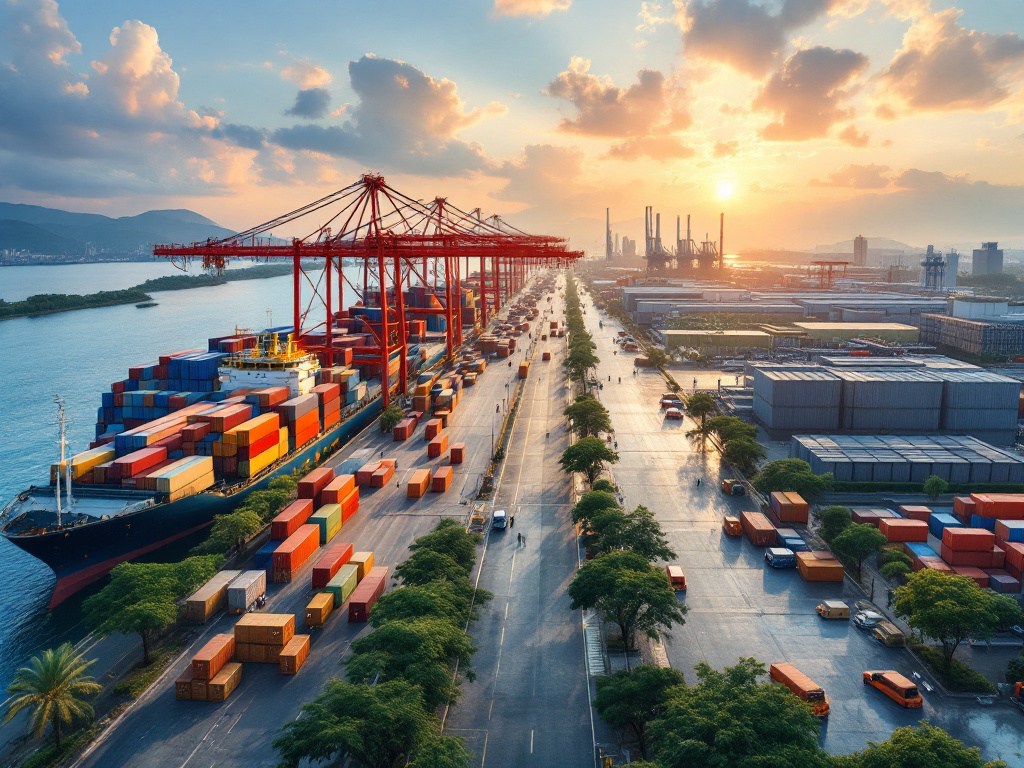Articles in this Cluster
10-05-2025
Chinese factories are relocating to Vietnam to escape President Trump's tariffs, with companies like Alibaba and Shein helping to facilitate the move. The high tariffs, which reached 145% on some Chinese goods, have caused a surge in exports from China to Southeast Asia as factories seek alternative routes. Vietnam is a prime destination due to its shared border with China and large workforce. However, the country faces challenges as the US is trying to limit China's use of Vietnam as a backdoor to the US market. Some Chinese companies, like QIS Sport Goods and Dongguan Box, have already shifted production to Vietnam, while others are exploring alternatives in Thailand and Malaysia. Despite the challenges, many Chinese businesses are optimistic that the situation is temporary and that trade will normalize soon.
10-05-2025
Chinese President Xi Jinping has been preparing for a trade conflict with the US for years, and the current trade war has allowed him to go on the offensive. In 2020, Xi laid out a vision to dominate global supplies of essential goods, making it harder for the US to impose tariffs or cut off China. Since then, China has ramped up exports, deepened its position as a manufacturing hub, and introduced new economic warfare tools such as export controls and blacklists. China's strategy is to make the world reliant on it, while it remains reliant on no one, and to challenge US supremacy. The trade war is putting pressure on the US, with prices of critical minerals tripling, and is likely to cleave the world into competing spheres of influence. Xi views the trade fight as a test of his authority and is rallying the public for a protracted "struggle."
10-05-2025
Top US and Chinese economic officials met in Geneva to discuss the trade war sparked by President Trump's tariffs, with the US imposing 145% tariffs on Chinese imports and China retaliating with 125% tariffs on US goods. Expectations for a breakthrough are low, but the talks have raised hopes of de-escalation. The negotiations will be watched closely by economists and investors, who fear a prolonged trade war could lead to slower global growth and higher prices. The US is seeking China's cooperation on issues such as fentanyl exports, while China has insisted it will not make trade concessions in response to US tariffs. A reduction in tariffs, potentially to 20%, could be a positive step, but an 80% tariff, suggested by Trump, would still likely shut off most trade between the countries.
10-05-2025
Hainan, a tropical island in southern China, is poised to benefit from the US-China trade war due to its special customs policies, allowing duty-free stores to maintain low prices despite sky-high tariffs. The island is set to launch its own separate customs regime, avoiding the 125% retaliatory tariff on US imports, and is expected to drive a surge in visitors to its duty-free stores, offering cheap iPhones and US cosmetics. Beijing aims to turn Hainan into the world's largest free-trade port, attracting tourists and businesses with a competitive tax regime and relaxed visa requirements.
10-05-2025
The US and UK have agreed to a deal that reduces US tariffs on British cars, steel, and aluminum. The US will lower its 25% tariff on cars to 10% for 100,000 cars per year, and establish a quota for steel and aluminum imports. The UK will also allow more US beef imports, with a quota of 13,000 metric tonnes. The deal is seen as a "fantastic platform" by UK Labour leader Sir Keir Starmer, while US President Donald Trump called it a "great deal". However, some business groups and opposition parties have expressed uncertainty and called for more detail and scrutiny. The deal does not alter the overall terms of trade between the two countries and leaves a 10% duty in place on most UK goods.
10-05-2025
The US-UK trade deal announced by President Trump may not be as beneficial as it seems, as it leaves a 10% tariff on UK imports in place. Experts warn that this baseline levy, which could serve as a minimum import tax on other nations, will remain a major headwind for importers and consumers. Although the 10% tariff rate is lower than some import duties imposed on other countries, it is still higher than the pre-Trump effective tariff rate of 3%. The deal is seen as a "modest improvement" but remains worse than the pre-Trump status quo. Economists are concerned that the ongoing tariffs will lead to higher costs for businesses and consumers, potentially causing a recession, and that the uncertainty surrounding the tariffs will make it difficult for companies to make plans.
10-05-2025
The UK steel industry has experienced relief following a US-UK trade deal announced by President Trump, which lifted 25% tariffs on steel imports. Marcegaglia Stainless Sheffield, a major steel producer, exports over $133 million worth of steel to the US annually and was significantly impacted by the tariffs. The company's employees expressed cautious optimism following the announcement, with one saying "everything had changed for us." However, uncertainty remains regarding products shipped to EU countries for further processing before being sent to the US. The UK steel industry has struggled with weak demand, foreign competition, and high energy costs, with domestic production now meeting only 35% of demand.
